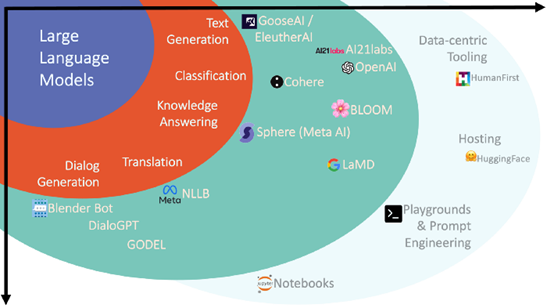Boosting Efficiency: Tips for Developing LLM Applications
First Published on 1 July 2023.
Introduction:
As Large Language Models (LLMs) like ChatGPT continue to captivate the world, application developers are increasingly incorporating LLMs into their projects. In this article, we will share handy tips to streamline your LLM application development process. By implementing these techniques, you can save time, reduce costs, and enhance the efficiency of your LLM applications. We’ll provide concise code examples illustrating retry logic, caching, and parallelization techniques when utilizing OpenAI APIs.
Tip 1: Create a Wrapper Function:
To simplify API calls to GPT, we recommend creating a wrapper function. This function encapsulates the necessary parameters and provides a convenient approach to call `openai.chat_completion`. By utilizing this wrapper function, you can enhance the ease of interaction with GPT in your application.
Tip 2: Implement Retry Logic:
When making API calls to OpenAI servers, it’s important to handle potential errors like RateLimitError or ServiceUnavailableError. To address such failures, incorporating retry logic using libraries like Tenacity can be beneficial. By automatically retrying the API calls with exponential backoff, you can improve the resilience of your application and handle intermittent server issues gracefully.
Tip 3: Fallback to GPT-4 for Lengthier Prompts:
While GPT-3.5 is often the default choice due to its cost-effectiveness and speed, it has a token limit of 4K. If your prompt exceeds this limit, an InvalidRequestError is raised. To overcome this limitation, you can implement logic to fallback to GPT-4, which has a higher token limit. This ensures that longer prompts can still be processed effectively within your LLM application.
Tip 4: Incorporate Caching:
To optimize development and production environments, implementing caching can significantly save time and costs. By caching GPT responses for repetitive prompts, you can avoid unnecessary API calls and retrieve the desired response directly from the cache. Utilizing a caching mechanism such as SQLite allows you to store and retrieve responses efficiently, enhancing the performance of your LLM application.
Tip 5: Utilize Parallel Calls:
To leverage the capabilities of GPT-3.5 effectively, taking advantage of parallel calls can significantly decrease response times for a batch of prompts. By using libraries like Asyncio in conjunction with `openai.ChatCompletion.
Additional Tips:
When deploying LLM applications in a production environment, logging prompts and corresponding responses is crucial for monitoring and analysis. Tools like PromptLayer or Log10.AI offer convenient libraries and infrastructure to facilitate effective logging and management of prompts and responses.
By following these handy tips for developing LLM applications, you can streamline your workflow, save time, and reduce costs. The code snippets provided in this article demonstrate practical techniques such as retry logic, caching, and parallelization that can enhance the efficiency of your LLM application development process. Feel free to utilize the code available on GitHub in your own applications, and optimize your LLM-powered projects for maximum effectiveness.
editor's pick
news via inbox
Nulla turp dis cursus. Integer liberos euismod pretium faucibua

